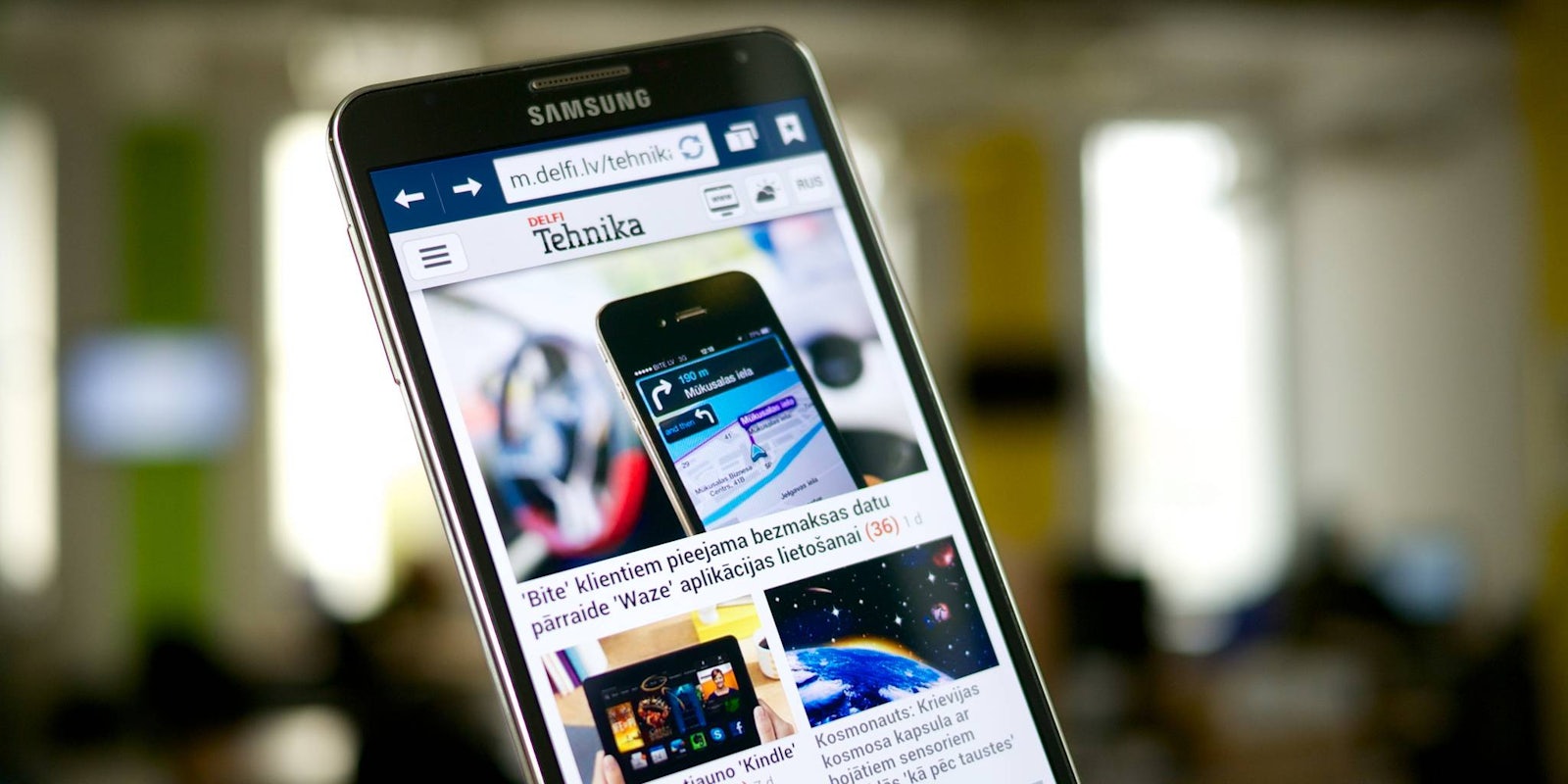Owners of Samsung smartphones and tablets got an overnight surprise that will improve their mobile experience: Ad-blocking functionality has been added to Samsung devices.
The Korean electronics manufacturer released an update on Sunday night that will allow apps to stop ads in the default Web browser.
Samsung is the first company that builds Android-powered devices to enable ad blocking, but it makes for a sizable trial balloon; according to Strategy Analytics, 22 percent of all smartphones sold in 2015 were made by Samsung.
It’s worth noting that Samsung’s ad blocking will only apply to its own, pre-installed browser. Google Chrome is by far the most popular browser option on Android, accounting for nearly 35 percent of the total mobile market according to Net Market Share. The pre-installed Android browser is around 10 percent. Still, given Google’s massive revenues generated primarily off of advertising, it likely isn’t thrilled at the concept of blocking them out entirely.
The decision by Samsung to enable ad blocking could also be seen as another attempt to separate consumers from Google and Android. It’s been rumored that Samsung eventually plans to move off of Android and onto its own operating system, Tizen. Offering features in its own browser that aren’t available for Chrome is a good way to capture consumers in the ecosystem and move them away from Google.
Samsung’s move toward ad blocking mirror’s Apple’s inclusion of the feature with last year’s release of iOS 9—a move that had more impact due to the popularity of Safari.
Samsung and Apple have long “borrowed” features from one another, but Samsung has been playing from behind lately and has done a fair amount of copying to catch up. It was rumored late last year that the upcoming Samsung Galaxy S7 would include a pressure-sensitive screen and 3D Touch-style features. The moves by Samsung will likely be the impetus for another visit to the courtroom from the companies to hash out copyright infringements.
H/T Fast Company | Photo via K?rlis Dambr?ns/Flickr (CC BY 2.0)


